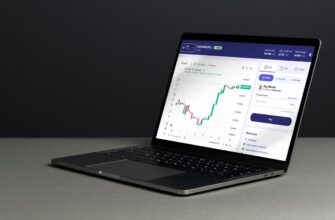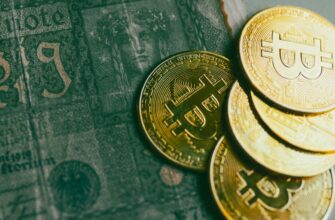Why Low-Fee USDT Trading Matters in New York
As a global financial hub, New York offers unique opportunities for cryptocurrency traders—but strict regulations and operational costs often lead to higher fees. Trading Tether (USDT), the world’s largest stablecoin, with minimal fees is crucial for maximizing profits, especially for active traders and arbitrage seekers. With New York’s BitLicense requirements limiting exchange options, finding platforms that balance compliance, security, and low costs becomes essential. This guide reveals proven strategies and platforms to trade USDT affordably in the Empire State.
Top Low-Fee Exchanges for USDT Trading in New York
These licensed platforms offer competitive fees for New York residents:
- Coinbase Pro: 0.4% maker/taker fee (reduces with volume). NYDFS-approved with deep USDT liquidity.
- Gemini ActiveTrader: As low as 0.2% for makers. Features NY trust company compliance and insured hot wallets.
- Bitstamp: Tiered fees starting at 0.3%. One of the first BitLicense holders with USDT/USD pairs.
- Robinhood Crypto: 0% commission trades (spread-based). Supports instant deposits but limited order types.
7 Strategies to Slash Your USDT Trading Fees
- Use Limit Orders: Always opt for maker orders to pay lower fees (often 0.1–0.2% vs. 0.4% for takers).
- Leverage Exchange Tokens: Platforms like Gemini offer fee discounts when paying with native tokens (e.g., GUSD).
- High-Volume Tiers: Aim for higher monthly trade volumes to unlock reduced fee schedules (e.g., 0% maker fees at 50M+ volume).
- OTC Desks for Large Orders: Negotiate flat fees for trades over $100k via institutional desks.
- Layer-2 Networks: Use Polygon or Arbitrum for USDT transfers—gas fees under $0.01 vs. Ethereum’s $5+.
- Fee Comparison Tools: Track real-time costs with apps like CoinGecko before executing trades.
- DEX Aggregators: Compare rates across decentralized exchanges (e.g., Uniswap, Sushiswap) using 1inch or Matcha.
Navigating New York’s Crypto Regulations
New York’s BitLicense mandates strict compliance for exchanges, impacting fee structures. Key considerations:
- Only 25+ platforms hold BitLicenses—avoid unlicensed services to prevent legal risks.
- Exchanges must maintain $500k+ in capital reserves, partially reflected in fees.
- NY residents can’t use offshore giants like Binance; stick to approved platforms.
- All transactions require AML/KYC verification, adding operational overhead.
FAQ: Low-Fee USDT Trading in New York
Q: Can I legally trade USDT in New York?
A: Yes, exclusively through NYDFS-approved exchanges like Coinbase or Gemini. Avoid unlicensed platforms.
Q: What’s the cheapest way to buy USDT in NY?
A: Gemini ActiveTrader offers the lowest base fees (0.2% for makers). Combine with ACH transfers to avoid deposit fees.
Q: Are decentralized exchanges (DEXs) legal in New York?
A: Trading on DEXs isn’t explicitly illegal, but lack of KYC may violate state laws. Use licensed CEXs for compliance.
Q: How do I avoid Ethereum gas fees when moving USDT?
A: Transfer via TRON (TRC-20) or Polygon networks—fees are pennies. Confirm exchange support first.
Q: Do NY exchanges charge withdrawal fees for USDT?
A: Yes, typically $1–$25. Gemini allows 10 free withdrawals monthly; Coinbase charges network fees only.
Q: Can I trade USDT tax-free in New York?
A: No. All trades are taxable events. Use tools like CoinTracker for IRS reporting.
Final Tips for Cost-Efficient Trading
Prioritize security alongside low fees—New York’s regulated exchanges offer FDIC insurance on USD balances and SOC 2 compliance. Monitor fee changes quarterly; platforms like Bitstamp frequently adjust structures. For high-frequency traders, algorithmic bots via APIs can optimize fee-sensitive strategies. Always verify USDT’s 1:1 USD peg before large trades. With these tactics, New York traders can harness USDT’s stability while minimizing costs in this dynamic market.








